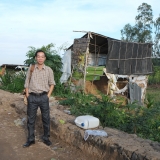Climate scientists, and natural scientists more generally, believe that climate change is a major, perhaps the most important, problem facing humankind this century, and that it is increasingly linked to extreme weather events. However, the impression one gets from much of the economic literature, particularly simulations from integrated assessment models used in policy analysis, is that the potential impacts of climate change are not large enough to warrant aggressive mitigation efforts in the near term. Although these models represent an important step in the needed interdisciplinary analysis of climate change by elucidating the links between climate and economy, we argue that they grossly underestimate potential impacts and associated damages because they (and the related policy analyses) fail to adequately capture extreme conditions, catastrophic events, and tipping points that trigger irreversible changes in the climate system, as well as impacts on the natural environment that cannot be monetized. Because the most severe impacts are expected in the later years of this century and beyond, discounting is crucial, and we argue that the appropriate rate is well below market rates. Moreover, we show that in the uniquely long period relevant to climate policy, the irreversibility of climate changes and impacts is more serious than the irreversibility of proposed mitigation measures. We conclude that an aggressive mitigation policy is warranted, one that holds further increases in global mean temperature to the scientific consensus on what is required to avoid the worst impacts, and that such a policy can be achieved at a cost that is well below potential damages.
Climate Policy: Science, Economics, and Extremes
EfD Authors
Country
Sustainable Development Goals
Publication reference
Fisher, A. C., & Le, P. V. (2014). Climate Policy: Science, Economics, and Extremes. Review of Environmental Economics and Policy, 8(2), 307–327. doi:10.1093/reep/reu009
